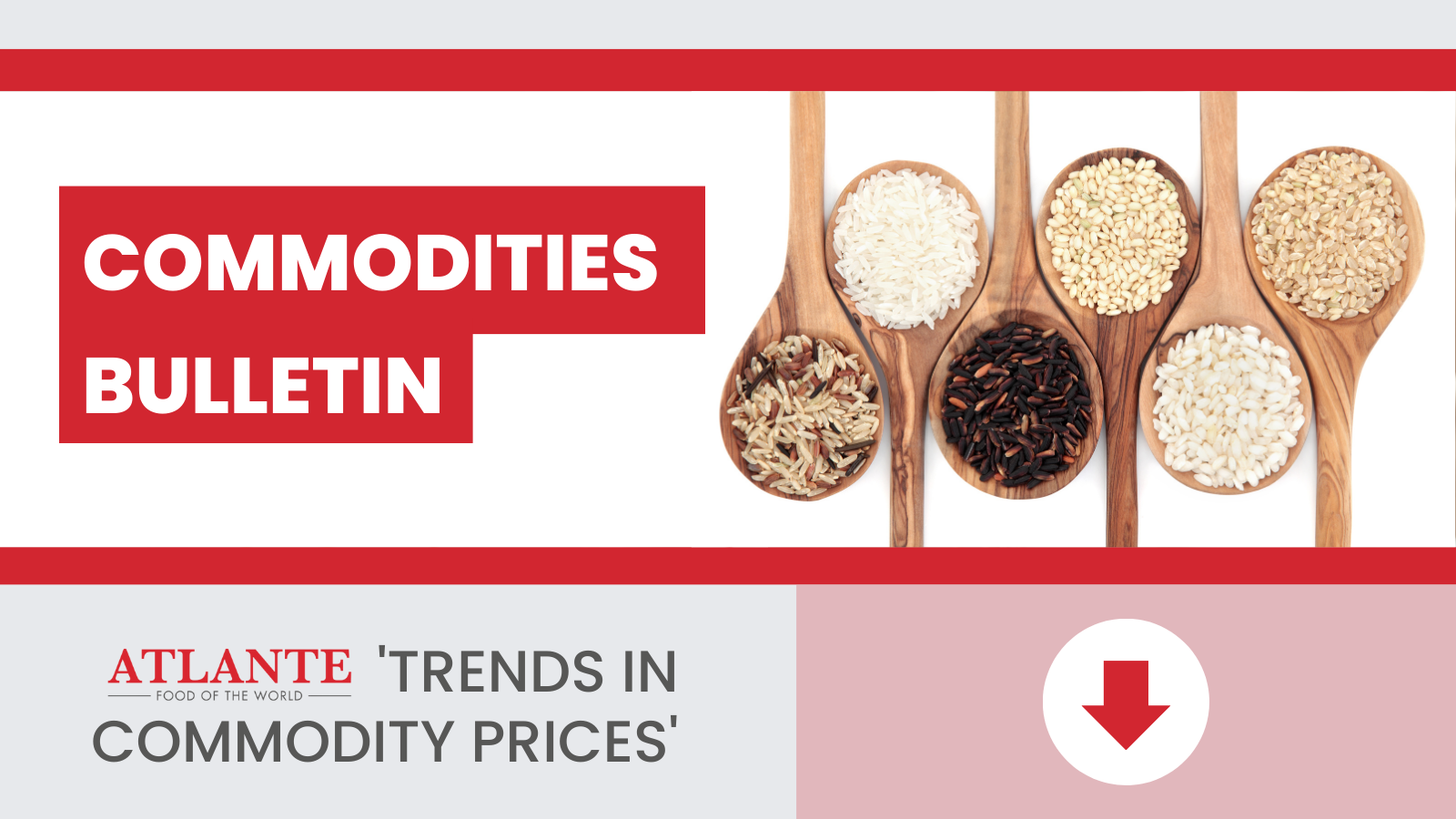Pulp and Paper industry stats
As pulp paper packaging is used for some of the foods that we supply we like to keep our finger on...
Thank you for visiting us!
This website does not completely support on Internet Explorer. Please use another browser.
Apologies for inconvenience

Atlante spotlights trends in the major commodities markets as a tool to help with FMCG buying strategies. Here are updates on commodity market trends as of October 2023.
At Atlante, we support FMCG buyers to make informed decisions about the markets in which they operate. Breaking supply chain, climate and consumer news often shapes the factors impacting commodity prices- so it's invaluable to stay informed!
Our Market Intelligence resources can help you understand the commodities in your cost stack, allowing you to make data-driven decisions guided by trusted research and analysis. Commodities bulletins like the one below are a quick and easy way to stay up to date on market trends that may impact you. Read on for an overview of commodities trends happening now.
Click the image to flip through detailed information about each commodity:
In macroecomonic terms, financial instability remains in issue across the board.
Markets have been expecting a considerable reduction in inflation due to repeated interest rate hikes. However, financial instability due to declining productivity, rising labour costs, and falling unemployment rates have prevented this forecast from being fulfilled in full.
There are other issues, which have developed over a longer and not yet concluded period of time, that continue to exert a significant influence on the development of real inflation:
• Regional conflicts (Israel-Palestine, Ukraine-Russia, China-Taiwan, Azerbaijan-Armenia) are complicating the supply of raw materials and fuel the drive towards deglobalisation, the return of barriers and protectionism and the raising of production costs. The developments in the latest escalation in conflict between Israel and the State of Palestine after decades of high tension and the extent of the war’s effect on markets need to be closely monitored.
• Ageing populations are placing an ever-increasing burden on state budgets and affecting public finances. Reduced availability and efficiency of public health services is imposing higher costs on citizens, attacking their savings and exacerbating inequalities.
• Climate change and pandemics challenge established supply channels for raw materials and exacerbate the suffering of the poorest part of the world, stimulating migration flows.
• Growing economic inequality makes it necessary to rethink the whole concept of welfare and we face new challenging questions such as the impact that artificial intelligence will have on the labour market.
The FAO food price index averaged 121.5 points in September 2023, remaining almost unchanged from its August value.
Declines in the price indices for vegetable oils, dairy products, and meat offset increases in the price indices for grains and sugar, with the latter returning to 2011 highs.
At its current level, the index is 10.7% lower than its corresponding level a year ago and 24% below its all-time high reached in March 2022.
Natural Gas: Operators begin to focus on winter deliveries in a fundamentally positive value environment. In north-western Europe, gas demand for power generation is decreasing due to increased consumption of renewable energy. On the supply side, increased Norwegian production, rising LNG shipments, and storage facilities close to full capacity have improved market sentiment.
Coal: In July 2023, South Africa's total coal exports amounted to 5.4 million tonnes, showing a year-on-year decrease of -0.8%. In contrast, the Australian coal industry experienced improved performance, attributed to better weather conditions. During the same period, total thermal coal exports increased by 57.9% when compared to July 2022.
Oil: While some non-OPEC+ countries, led by the US, managed to partially offset the cuts imposed by the Saudi-Russian axis through increased crude oil production, there is a growing imbalance between oil supply and demand that could potentially result in the largest oil deficit since 2007 in the upcoming quarter. In preparation for this scenario, governments in Europe and America are gearing up to implement urgent countermeasures to mitigate the imbalance, recognizing the significant impact that crude oil prices have on inflation rates.
For detailed analysis on individual raw commodities including the following, click here.
Stay informed about trends in grains, oils, eggs, dairy products, legumes, and colonial goods with Atlante. For custom support and help along your FMCG journey, contact us via the form below.
As pulp paper packaging is used for some of the foods that we supply we like to keep our finger on...
On the 18th September, the Atlante UK team will be in attendance at one of the most highly...
The Coronation of King Charles III took place at the start of May and the whole country joined in...